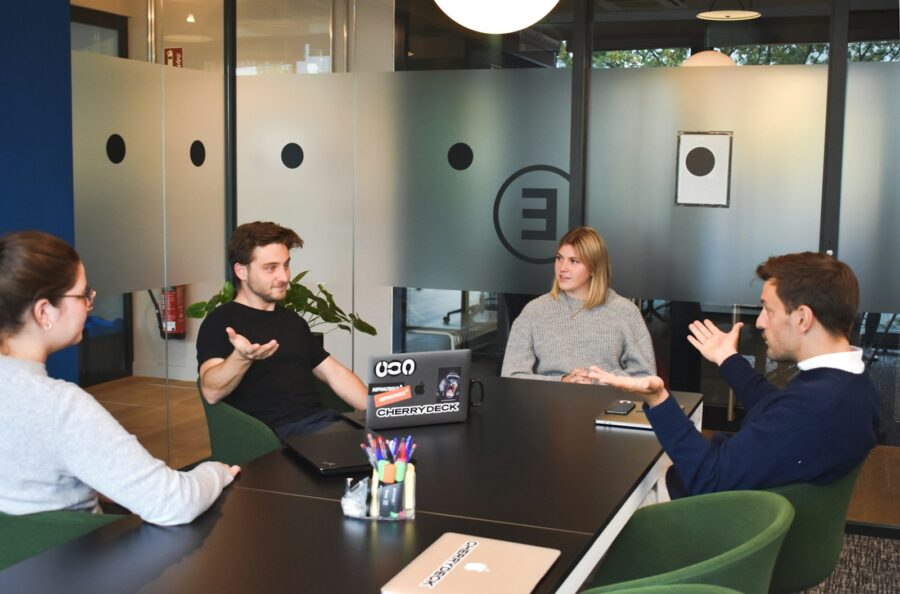Some of the biggest challenges facing employers right now include retention of top talent, meeting salary and pay rise expectations, and providing a good work-life balance for employees, according to new research.
HR software provider Ciphr commissioned a survey of 300 UK HR decision-makers to find out which workplace challenges, if any, were causing their organisations the biggest headaches in 2024.
Based on the results of this research, most UK businesses appear to be grappling with a multitude of internal and external economic pressures. Answering on behalf of their organisation, survey respondents each identified an average of 11 different workplace challenges or HR pain points. Any one of which could, potentially, hinder their operational success over the coming year.
Retaining employees and keeping skilled workers onboard (helping organisations curb costly high turnover rates and lost productivity) topped the poll of biggest challenges. Over half (51%) of HR survey respondents reported retention as their top worry for the year ahead.
Over two-fifths (46%) of employers also expressed concerns about their organisation’s capacity to meet employees’ expectations around wages, work-life balance, and mental health and wellbeing support.
Satisfying staff’s remote or hybrid working expectations emerged as another key challenge (for 45% of respondents).
Other chief concerns were revealed to be recruiting enough qualified candidates and maintaining an engaged workforce (both 45%). Followed by providing a good employee experience, promoting talent from within to fill skills gaps, reducing absenteeism caused by work-related stress, and ensuring a positive workplace culture (all coming in at 41%).
The top 10 challenges facing UK employers in 2024
- Retaining employees / keeping top talent (cited by 51% of surveyed HR professionals)
- Meeting employees’ pay expectations (46%)
- Providing a good work-life balance for employees (46%)
- Supporting employees’ mental health and wellbeing at work (46%)
- Meeting employees’ remote or hybrid working expectations (45%)
- Recruiting enough qualified talent (45%)
- Maintaining an engaged workforce (45%)
- Providing a good employee experience (42%)
- Promoting talent from within to fill skills gaps (42%)
- Reducing absenteeism caused by work-related stress (41%)
- Ensuring a positive workplace culture (41%)
Common challenges (or opportunities, depending on your outlook) that narrowly missed inclusion in the top 10 included providing regular and ongoing employee training and development, and encouraging employees to attend the (physical) workplace more often or a specific number of times a week, for example. The latter appears to be slightly more of an issue (43% vs 38%) for smaller organisations (with less than 50 employees), than their larger counterparts (with more than 250 employees).
Claire Williams, chief people and operations officer, at Ciphr highlights the necessity for organisations to recognise that their people are their greatest asset. And that their business success is contingent on continued investment in their employees.
Claire emphasises the need for employers to invest in their workforce to attract and retain top talent. Challenges such as a volatile global economy, salary inflation, rapid technological advancements, and a workforce with diverse generational expectations are reshaping the labour market.
Moreover, Williams points out that while many organisations face financial constraints due to necessary investments in technology, compliance, and professional standards, investing in people doesn’t always require extensive budgets. Instead, it demands a shift in leadership mindset. Organisations failing to adapt to these challenges risk falling behind.
Budgets aside, the biggest investment that employers can give is their time. Creating clear purpose, transparency and good communications, a strong and forward-thinking culture, diversity and social impact – all come down to the time that leaders are willing to put in and spend with their employees. It’s the easiest, yet most frequently missed, action that organisations can take and it will – very likely – have the biggest, positive impact on employee experience and retention.
Claire Williams, Chief People and Operations Officer at Ciphr
Joanne is the editor for Workplace Wellbeing Professional and has a keen interest in promoting the safety and wellbeing of the global workforce. After earning a bachelor's degree in English literature and media studies, she taught English in China and Vietnam for two years. Before joining Work Well Pro, Joanne worked as a marketing coordinator for luxury property, where her responsibilities included blog writing, photography, and video creation.



